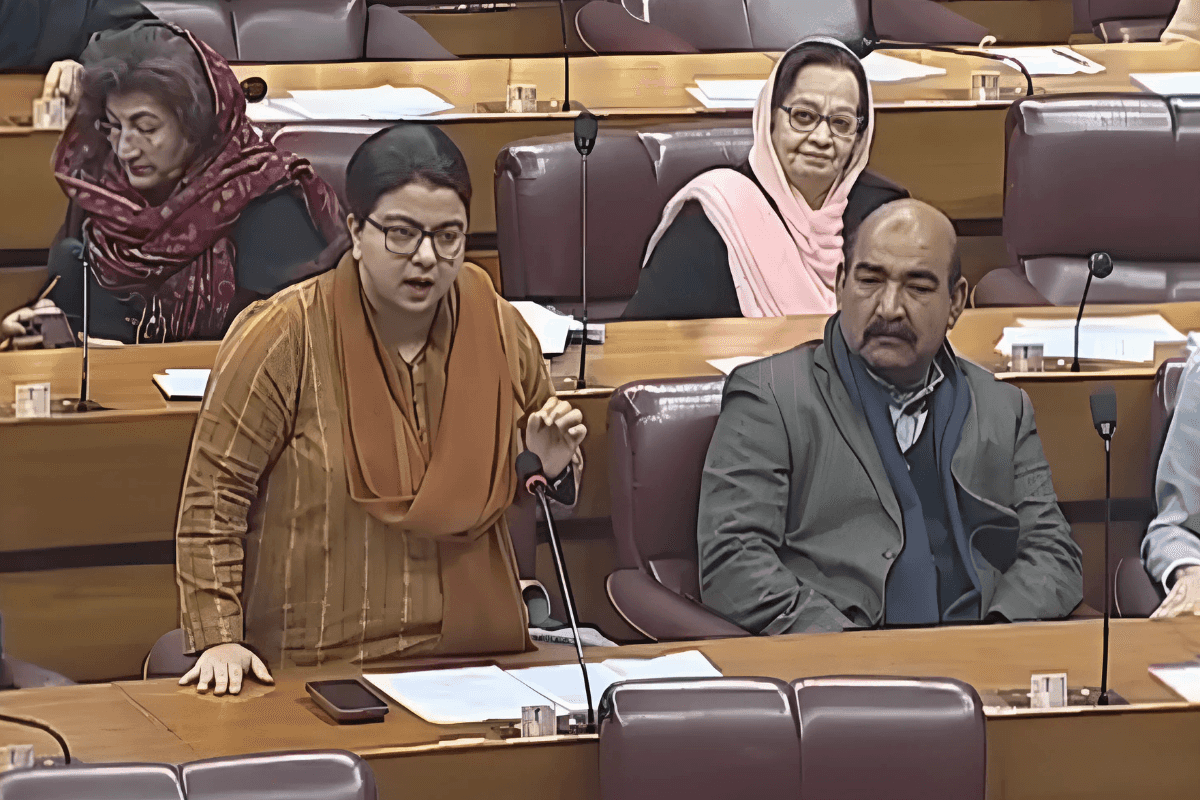Pakistan in talks with Starlink amid internet woes: IT minister
PTA report reveals 16% drop in TikTok traffic amid widespread disruptions
News Desk
The News Desk provides timely and factual coverage of national and international events, with an emphasis on accuracy and clarity.

Nukta
Pakistan's government is in talks with Elon Musk's Starlink to introduce satellite internet services, the country's IT minister said Friday, as the South Asian nation of 240 million grapples with widespread internet disruptions and an ongoing ban of social media platform X.
Minister of State for IT Shaza Fatima Khawaja revealed the negotiations during a heated parliamentary committee session, marking a potential shift in Pakistan's position toward the satellite internet provider. "Talks are ongoing with Starlink to provide better internet to citizens," Khawaja told lawmakers, though she did not provide specifics about the negotiations.
The announcement comes as Starlink's previous efforts to enter the Pakistani market have stalled. The company registered in Pakistan in 2021 and applied for a Long Distance and International (LDI) license in February 2022, but has faced regulatory hurdles over technical concerns, particularly regarding potential interference with Pakistan's geostationary satellite, PakSAT-MM1. Last week, former U.S. President Donald Trump's special envoy Richard Grenell publicly urged Musk to extend Starlink services to Pakistan.
During Friday's committee session, Khawaja defended her ministry's handling of internet restrictions while acknowledging infrastructure challenges. "Our best internet is also not what it should be," she admitted, though she maintained that recent connectivity issues have been resolved and "no industry has any problems now."
The minister justified ongoing surveillance measures by citing security concerns. "There is terrorism in this country," she said, referencing the deaths of "more than a hundred young soldiers" in the past month. "We have to conduct surveillance where necessary, but unnecessary surveillance should not be conducted on the public."
Pushing back against criticism of internet disruptions' economic impact, Khawaja pointed to Pakistan's reported $1.5 billion in exports last month. "If the internet is down, where is this money coming from?" she asked rhetorically. Committee member Mustafa Kamal challenged her narrative, suggesting she hold a joint press conference with Pakistan Telecommunication Authority (PTA) officials to address discrepancies in their statements.
PTA investigation contradicts minister
Meanwhile, the PTA released an investigation Friday that contradicted the minister's assurances about internet service. The report documented widespread disruptions across all major networks.
Mobile operators Jazz and Telenor identified specific blocking issues with X, while Zong reported broader impacts, including a 16% reduction in TikTok traffic. Fixed-line operators PTCL, CyberNet, and Transworld all confirmed slowdowns affecting video streaming, calls, and web browsing.
PTA Chairman Major General (retd) Hafeezur Rehman distanced his agency from infrastructure problems during Friday's session. "Not a single submarine cable has come to Pakistan in the last ten years," he said, emphasizing that cable development is the government's responsibility. "We only deal with internet when we receive orders from the government or court."
Pakistan has struggled with internet accessibility since early 2024, when authorities shut down X, formerly Twitter, citing security concerns. The platform's closure, which Khawaja says affects less than two percent of Pakistan's population, is part of broader internet restrictions that have drawn criticism from civil rights groups and business leaders.
Pakistan's digital troubles
The restrictions come as Pakistan pursues ambitious digital transformation goals through its Digital Nation Pakistan Bill 2024, backed by $78 million in World Bank funding. The government launched its own communications satellite, PakSAT-MM1, in May 2024, aiming to improve connectivity in remote areas.
However, ongoing service disruptions and disagreements between government bodies have raised questions about the country's ability to balance security concerns with growing demands for reliable internet access.







Comments
See what people are discussing